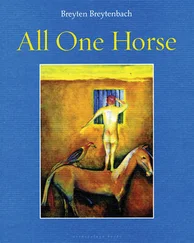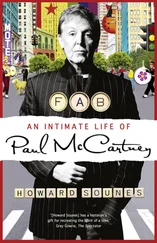Does exploring (and exploiting) the ‘coming-to-self’ as means and as material imply that one has only the ego to go by? No, I certainly don’t think so. Writing has enough of an ‘outside-ness’ to it — its own volition and laws, its desire to come about — for you not to be confined to fumbling (for) yourself in a self-reflecting darkroom. In any event, as I’m suggesting, the ego is but a repository for an ongoing process of coming to consciousness informed by both outside and inner events, a station hall for many selves and shouts, a shard of that big mirror we call life.
(mirror note 2)
Slowly now, what about the counter-arguments? Ernest Gellner wrote a book, Language and Solitude , in which he challenges many of the assumptions of Malinowski and particularly Wittgenstein on language. There’s a chapter, “The case of the disappearing self,” where he quotes David Hume: “For my part, when I enter most intimately into what I call myself, I always stumble on some particular perception or other. . I never can catch myself at any time without a perception, and never can observe any thing but the perception. . I may venture to affirm of the rest of mankind, that they are nothing but a bundle or collection of different perceptions, which succeed each other with an inconceivable rapidity, and are in a perpetual flux and movement.” Kant as well (we’re told) held that there is nothing abiding except the “I,” which is simple solely because its representation has no content. . All of this preceded and influenced Wittgenstein, who wrote in his Tractatus Logico-Philosphicus : “If I write a book called The World As I Found It , I should have to include a report on my body, and should have to say which parts were subordinate to my will, and which were not, etc., this being a method of isolating the subject, or rather of showing that in an important sense there is no subject; for it alone could not be mentioned in that book.” And thus: “The self of solipsism shrinks to a point without extension, and there remains the reality co-coordinate with it.” Gellner then observes (and I quote snippets): “It is quite obvious what has happened. The empiricist insistence on refraining from trespass beyond the immediate data ends up by eliminating both an independent world and an independent, persisting self. Both dissolve and, moreover, flow into each other, and both disappear. The solitude is total. This surely was the problem, and not a solution, for Wittgenstein. He was not seeking a bolt hole from Kakania, he was looking for an escape from the bolt hole. . The one and only alternative theory of meaning, by contrast, promised and provided liberation from this solitude, and a kind of guaranteed gregariousness. Language as a mirror of reality led to loneliness; language as a cultural function led to community. . [But] Wittgenstein never pointed to any actual historically existing culture, such as Kakania. Examples continued to be conspicuous by their absence. . In the end, culture was treated as ultimate, as a kind of new ultimate visual field. So the solitude of the visual field (co-extensive with both self and world) is replaced by the solitude of culture. .”
Writers are the scattered or lost tribe of the world. They originated from one belief — even the tenets have since been lost — shared rituals and music, and the same place, which was an oasis port on the edge of dark badlands. Because of a history of roaming and Diaspora long, long ago, the individual members became stultified in separate languages and they took on as protective coloring the customs and the beliefs of the populations among whom they lived. They may have given their hearts to the people. But when they meet they recognize one another by a look in the eyes as if squinting against the sun, and by the clumsy gestures of hands. Their hands are uncertainly looking for sugar signs of sharedness. This they will see, maybe with mortification, remorse and shame: that they are indelibly marked by the same stubborn illusions, the same shortcomings making their fit into life an awkward one, the same yearning for projecting connectedness and for initiating transformation. As they go about their business of assessing ass (this is a slight sleight of hand, I’m sorry) they have the same timid desire for transgression. Speak not of transcendence, friend. They’re not sure how they relate to the other tribes of the Book, and perhaps they don’t really care. And they intermarried over generations and ages and seasons to the point of becoming mongrels and bastards mistaking themselves for dogs when they see a mirror. All they do know is that despite the distances of exile and fusion, they have the same phantom aches and passions that put them apart from the preoccupations of their environment to start with. Does the dog ever consider losing its dog-ness? This tribal condition can be isolated as a genetic weakness that one is unaware of but which will rise like a cloud of flies in your face the day you open a book — it is the first day it is the last day — to obscure your self as in a mirror or a sunken Atlantis. So this is where I belong? This is where I will become whole? Of course, it doesn’t work out that way. Once inside, you’re lost for good. And for bad. The consolation, friend, comes from recognizing your affinity with the other lost souls flailing around for purpose and for meaning. With those barking at the stars in the night. Ah, the pleasure comes from realizing that the sicker you get the better you will feel; the more isolated and alienated you are the more you are tied to others of your kind.
it is the tree coolness by day
like a robe of grace
draped around the trunk
it is the fire by night
burning holes in the dark
it is where sun and moon perish
and the answerableness
of identity
is weighed slaked shifted
to all evil things worded away
not-us is the fulcrum of rancor
in squatting together for solace
memory is leisurely fumbled
folded fashioned
measure for measure
and fitted to words
do we know who we are
one by one
for you and one
for me the blood and the clay
the rememberer’s song
but when the tree is chopped down
so that sun burns a stain in the eye
and fire goes to ashes
to a scorched blot of absence
we are strewn to four winds
do I not know who I am
wandering through the flame-fed day
and night’s shivering articulations
looking for you as if for mirror
I have been mulling over in my perambulating or peregrinating (or percolating) thoughts the notion of ‘the function of writing.’ In the light of the September 11 parting of the waters and the ensuing war. Note: not necessarily ‘the role of the writer,’ for that chestnut has for some time already been a horse drowned in many a shallow ford (in a manner of speaking); and no wonder the beast expired screaming and frothing at the bit, because numerous self-aggrandizing scoundrels, standing in the stirrups to look tall, had been flogging it to death. In my mind and memory I try to avoid the trap. Nietzsche, it is told, finally lost the remnants of his clear mind when he saw a horse being whipped in the street, and he went up to it and threw his arms around its neck and wept. But I’m not Nietzsche. And then, if I wish to hold to my tenet that “writing is an awareness-enhancing process,” I have to engage the question of how the above events affect our writing. And what our consciousness implies.
How are we all dealing with the aftershocks of incomprehensible death from the skies torching the skittles of our Western vanity? (Incomprehensible because carried out by humans like us.) Are we more or less alive than before? Has it modified our concerns? Did it change our writing? Is there any other perceptible smell except for the whiffs of decomposing flesh? Do revulsion and sadness and anguished anger smell? Rather — did only the flesh perish (and with it our glittering conceit of invulnerability, the ostensibly endless triumph of human ambition and ingenuity tumbling in a cloud of gray glory), or did some conceptions and values also fall away? How do we come to terms with naked terror? You were too shy or intimidated to talk back at me, other than saying you perhaps sleep less soundly and are more skittish. I respect your timidity, or possibly it is reserve, but at the same time I have to insist that you are a writer, that all our discussions around technique (arc, voice, tense, sense, angle and character) will be hot air unless we also think about how this activity fits in with larger social and ethical concerns. (I might as well say existential — you have been generous and patient enough to listen to me claiming that words are the original breath of awareness, and not just hot air.)
Читать дальше












